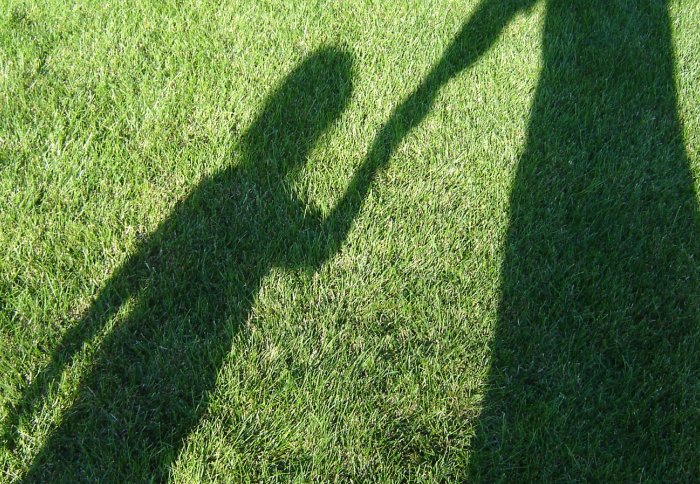Medical students learn by following new mother-and-child over three years
by Ben Campion

An innovative 'Follow My Footsteps' programme is enabling Imperial medical students to follow the development of a child from before birth to age two.
Medical students at Imperial College London have a unique and practical opportunity to develop their professional skills with an initiative that sees them regularly meet with a mother and her child over a three-year period.
Believed to be the only programme of its kind in the world, ‘Follow My Footsteps’ is an opportunity for aspiring doctors to learn how families adapt to the changes that children bring to their lives, the importance of a healthy start in life, and how to assess and monitor a child’s development.
The project sees 68 students visit an expectant mother, and then her and her child, at least six times over three years. The scheme is voluntary, and the School of Medicine believes it helps students become more patient-centred and develop their professionalism as they get to know a mother and child over an extended period.
The programme is particularly attractive for those students who might be interested in public health, paediatrics, obstetrics, psychiatry or general practice—and, of course, their future patients. The academics behind it emphasise that the benefits of the project cut across traditional medical specialties, however.
“Whilst much of medical student training is based in hospitals, we think it is important that students meet families in their own homes and their own communities,” explains paediatrician and project co-director Dr Robert Boyle.
“Being a good doctor involves treating people as individuals and understanding their particular needs. We want students to learn about the different ways in which families raise their children and the different needs which families have from the healthcare service.
“We also want students to visit a family over a period of change for that family, so they can develop the skills to care for the same patients with varying problems over time.”
Real world experience
The students take part in a tutorial before each visit to discuss their case with an Imperial healthcare professional and fellow students, including different aspects of a child’s growth and development, and the impact of environmental influences on long-term health.
A handbook is given to each student who joins the programme, which builds into a detailed learning record of the whole project. The students visit their families in pairs at home and, where possible, attend baby clinics and healthcare appointments.
Once a year, each student gives a short formal presentation about the child they are visiting to their tutorial group. They receive formative feedback throughout the programme from their peers and tutors. Learning materials, online resources and further reading are provided to support students in visits to their family.
Future health starts in early life
As well as helping students on their way to becoming practising doctors, it is hoped that the initiative will provide them with greater insight into the long-term effects of early environment on health and development—a concept known as the developmental origins of health and disease.
The idea that early experiences shape future health is not new—but in the past twenty-five years, research has focussed interest in this area.
“Epidemiological studies such as those of David Barker have identified associations between perinatal events and risk of chronic ill health throughout the life course,” explains Professor Mitch Blair, co-director of Follow My Footsteps.
“There is now enough supportive evidence to accept that some of our risk for cardiovascular morbidity, diabetes and other chronic health problems is modified by our very earliest experiences.
“New evidence from the fields of education and sociology have also led to increased focus on the early origins of educational attainment and antisocial behaviour.”
By witnessing first-hand a mother and her child’s journey, students have a window to understanding the unique opportunities that are present during the early years for promoting life-long health.
“This is an exciting journey for our students and the families who they are following,” adds Dr Boyle. “It will provide them the opportunity to offer continuity of care and support over a significant part of their training, and learn together with their family.”
Article text (excluding photos or graphics) © Imperial College London.
Photos and graphics subject to third party copyright used with permission or © Imperial College London.
Reporter
Ben Campion
Faculty of Medicine Centre